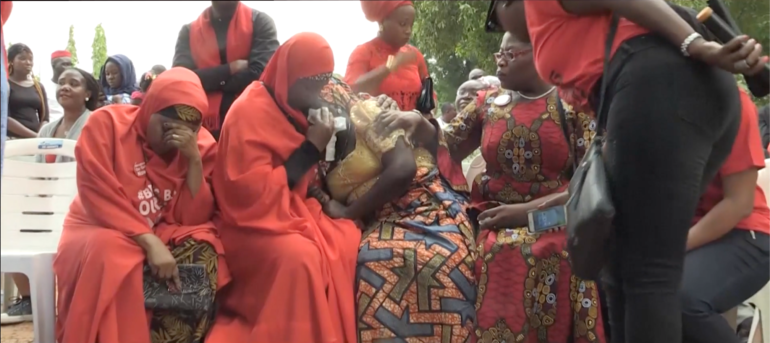As the world focus is on fighting the spread of COVID-19, the virus threat has done little to stop terror attacks in sub-Saharan Africa.
Seven of the ten countries with the largest increases in terrorism deaths in 2020 were in sub-Saharan Africa, according to the Global Terrorism Index.
Terrorist groups, including Al Qaeda, Al Shabaab and ISIL, have used the public health crisis as an opportunity to expand. Extremist groups are also releasing pandemic-related propaganda, capitalizing on the human and economic losses, and blaming governments’ incompetence. Some jihadi groups have even started delivering food and providing health care in areas where state control is weak.
“On top of ideology, on top of messaging and top of economic loss, [the pandemic]’s created another perfect storm for individuals to be radicalized,” said counter-terrorism expert Muhammad Fraser-Rahim.
Fraser-Rahim has worked with former jihadis and says terrorist groups speak to individuals’ grievances. “Not all grievances that are highlighted are absolutely outside of the mainstream. There’s some legitimate ones.” He added, “I think that we’re confronted just now or we’re confronted not just in the United States, but globally with these multiple threats and individuals who are easily manipulated by even conspiracies.”
Nigeria, Boko Haram and the Chibok girls
In Nigeria, the leader of terrorist group Boko Haram compared COVID-19 lockdown measures to “a war on Muslims.”
The group — whose name means “Western education is forbidden” — gained global notoriety in 2014 when it kidnapped 276 schoolgirls from the town of Chibok.
Nigerian author Helon Habila traveled to Chibok to meet the escaped girls and families of the abducted, publishing the account in his book The Chibok Girls.
“When you’re traveling, you see all the schools, because that’s markers of all of their progress through these areas. They always destroyed schools…So you go from village to village, from town to town, you see all the burnt down schools and homes and the bullet holes,” Habila said.
“This is like a war front. And I’ve been there. And things could have happened to me, you know, but for the grace of God,” he said.
Today, more than 100 of these Chibok girls are still missing, as Boko Haram continues to recruit followers and launch attacks even during the pandemic.
Mali’s path to peace
Mali has become a new ground zero for terror. The strengthening of militant groups in the West African nation could allow Al Qaeda and ISIL to establish new strongholds.
Malians living through the crisis are examining the reasons the region is ripe for jihadi recruitment and giving voice to a growing citizens’ movement.
 CGTN America
CGTN America
